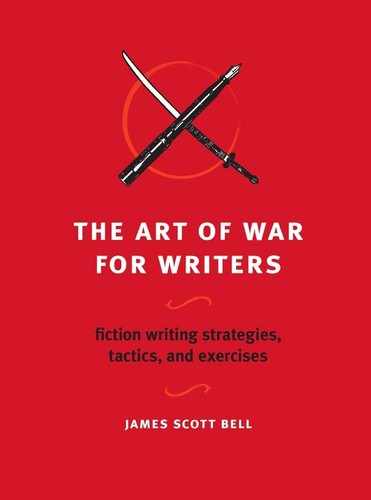
253
77
To survive over any length
of time, you must turn any
criticism into a strength.
If you write for any length of time, you’re going to get
slammed by a critic. Doesn’t even have to be a profes-
sional critic. It can be somebody in your writing group,
or some anonymous Internet gadfly. Or your crazy
uncle Phil.
Mickey Spillane was always being attacked by crit-
ics. In an interview, he said, “I don’t pay any attention to
them. Those guys, they get free books and then they try
to tear you down. Critics themselves, they used to tear
me up. … At one point, I was the fi fth most translated
writer in world. Ahead of me were Lenin, Gorky, Tolstoy,
and Jules Verne. It doesn’t mean anything, but it’s a fun-
ny thing to bring up. One day … I’m at a tea party, if you
can picture me at a tea party, and this guy comes up to
me and says ‘What a horrible commentary on the reading
habits on Americans to think that you have seven of the
top ten bestsellers of all time,’ and I looked at him and I
said, ‘You’re lucky I don’t write three more books.’”
Spillane’s wry dismissal is instructive. There are
some critics who simply tear at you, and you can and
Z4273i_243-259.indd 253Z4273i_243-259.indd 253 9/24/09 11:21:44 AM9/24/09 11:21:44 AM

254
should ignore them. There are others, however, who just
might have a point to make that you can learn from.
So learn, glean, and ignore the rest. Treat it as a pain,
a symptom that you show the doctor. He treats you, tells
you how to get better, and sends you on your way.
Every hour you spend writing is an hour not
spent fretting about your writing.
—Dennis Palumbo
When You Get Criticized:
1. Take a deep breath and don’t do or think or
say anything about it for a day. You’ll feel it, of
course. If you have to punch a pillow or eat an
entire Bundt cake, go ahead.
2. The next day, consider the criticism with cool
distance. Ask the following questions:
a. Is there anything in here I immediately
agree with? Be honest with yourself. With-
out honesty, you will miss opportunities
for growth.
b. Is there anything in here that is personal,
rather than professional, criticism? Re-
member, if it’s personal (“Dear, it’s quite
brave of you to continue to try to write,
Z4273i_243-259.indd 254Z4273i_243-259.indd 254 9/24/09 11:21:44 AM9/24/09 11:21:44 AM

255
but at some point you must come to
terms with the simple fact that you have
no talent for this sort of thing”) forget it.
The critic is a dunce.
c. Once you have identifi ed weak points in
your writing, defi ne them with specifi c-
ity. For example, you may fi nd that you
are having trouble creating three-dimen-
sional characters. Or your dialogue is fl at.
Whatever. Write down the challenge—and
that’s all it is, a challenge. Which is good.
It forces you to get better.
d. Create a self-study program for tackling
the problem area. See “The career novelist
will develop a writing improvement pro-
gram …” on page 39.
what to do when it really hurts
Let it hurt for half an hour, no more. Then get back to
writing. Writing itself is the only known antidote for
bad reviews, dings, nasty e-mails, returns, and skepti-
cal relatives.
Then stand up from your next intense writing stint
and shout, “I feel like a phoenix rising from Arizona!”
1
1 Frank Costanza, Seinfeld.
Z4273i_243-259.indd 255Z4273i_243-259.indd 255 9/24/09 11:21:44 AM9/24/09 11:21:44 AM
..................Content has been hidden....................
You can't read the all page of ebook, please click here login for view all page.
